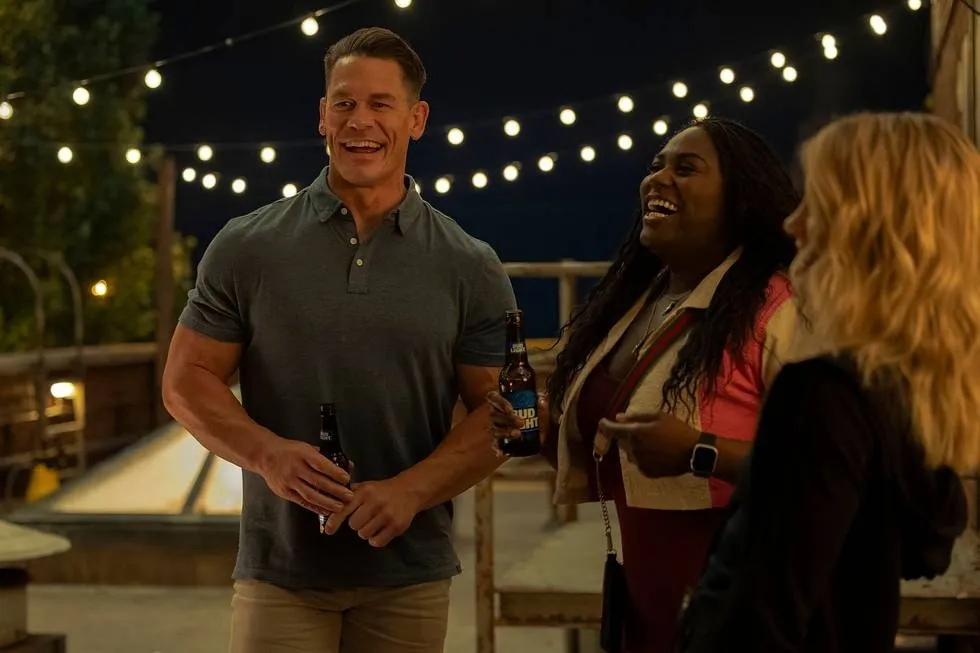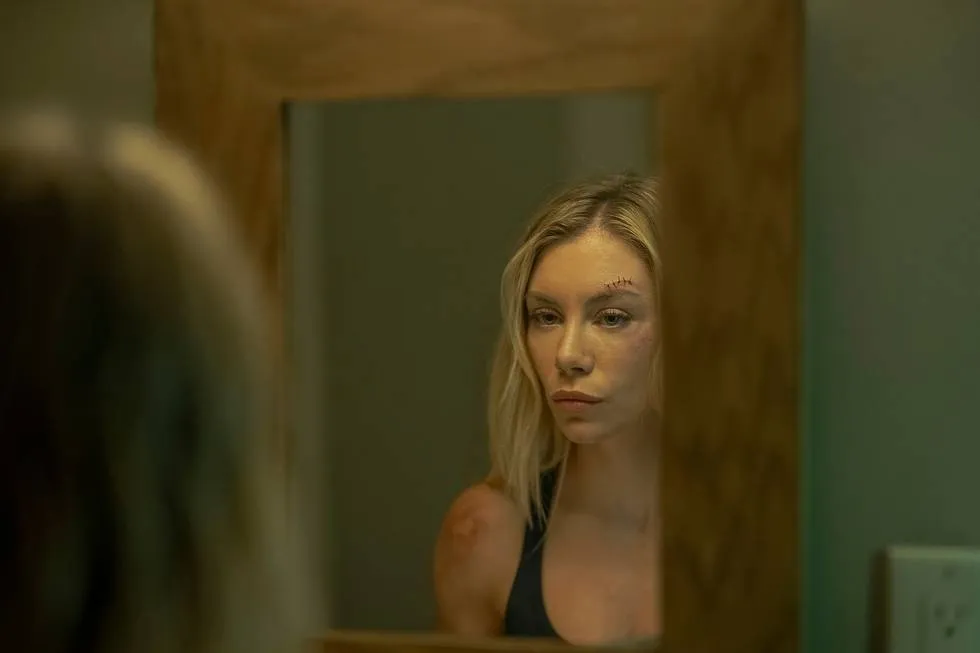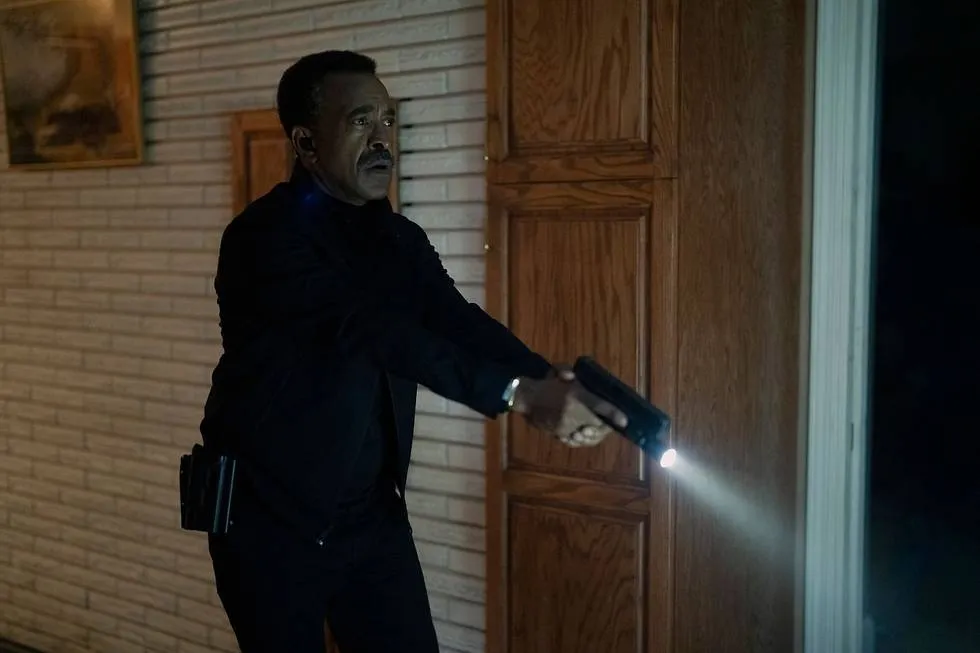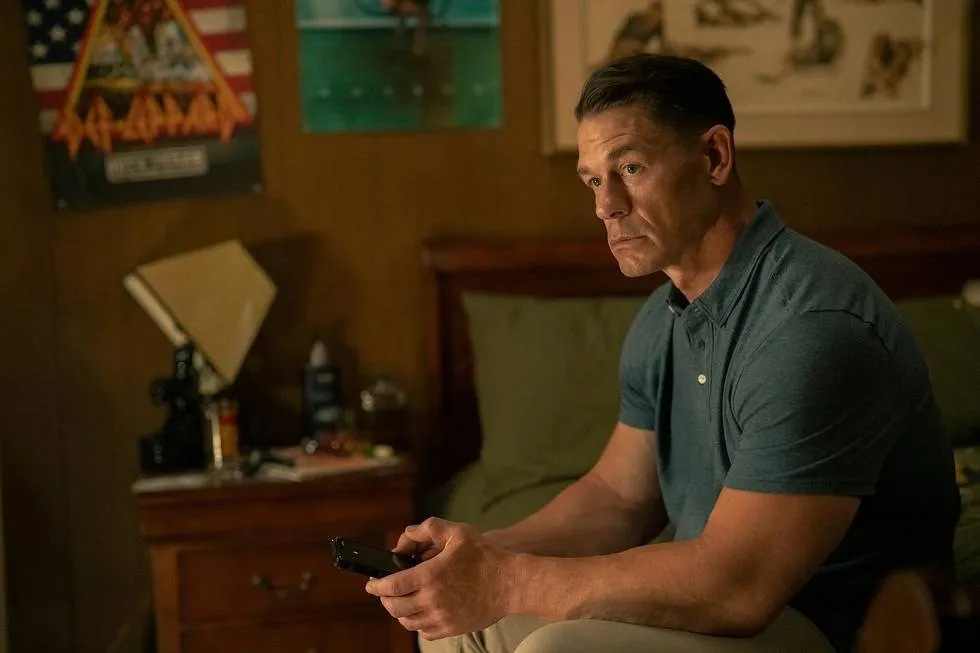
Many of the crimes and legal situations that come up in comic books have a real-world equivalent. But Peacemaker might’ve found an exception at the end of last week’s episode. How do you prosecute someone who killed themselves in self-defense? Chris isn’t in trouble for killing his other-world counterpart, but that fight is something he’s going to live with.
This review may contain some spoilers for Peacemaker Season 2, Episode 2.
Last week’s episode introduced us to the Peacemaker Fantasy World, a world seemingly right out of Chris’ dreams. But it also gave us our first real hint that maybe this fantasy world isn’t all it’s cracked up to be. They never are, but Chris has to figure that out for himself. When Chris runs afoul of that world’s Peacemaker, we see just how far Chris has come as a character. Sure, going into the other guy’s world was a bad idea. But Chris tried to talk and ran away before he began acting in self defense. When he killed the Fantasy World Peacemaker, it wasn’t intentional.

Meanwhile, this other Peacemaker had no interest in asking any questions. He knew there was a dimensional door in his home, saw another version of himself, and never once thought that the situation might be better handled with a few questions. Instead, he went right to killing Chris without any hesitation. That doesn’t seem like the kind of action taken by a person who has done a lot of work on themselves and is trying to turn a new leaf.
This second episode does a fair amount of place setting. It starts with a flashback to Rick Flag Sr.’s first day as the new head of ARGUS, replacing Amanda Waller. He immediately uses his powers to start looking for an excuse to kill Peacemaker, establishing him as the major antagonist of Chris’ home dimension. We also start to get more into the politics of ARGUS, especially circling around Peacemaker, when Economos finds himself with a new partner, Langston Fleury (Tim Meadows).

If you remember the kinds of parts Meadows played in things like Walk Hard: The Dewey Cox Story, Brooklyn Nine-Nine, and others, you know what you’re in for: a creep who says extremely weird stuff with an utterly straight face. He’s basically a walking wink. He’s the source of humor in this episode thanks to his debilitating weakness, bird blindness. I’m absolutely a mark for this kind of humor, so this worked great for me.
It works out even better when Fleury and his team break into Chris’ house while he’s out partying with the 11th Street Kids. The action sequence here is all at once hilarious, cool, satisfying, and gory.
While his house is being invaded, though, Chris is out with his friends. Of course, he tries to talk to Harcourt, but she takes his concern for her as him wanting to be a savior for her, and hammers the wedge in their friendship even deeper–pushing him once again toward substance abuse and, unknowingly, toward the Fantasy World.

This episode continues these themes of avoidance and self-punishment that Chris has talked himself into, and the Fantasy World presents a world where he, in theory, doesn’t have anything to punish himself for or run away from, even though simply being there is running away.
But we see how adrift all of these characters are in this episode, too. Harcourt gets into another fight, albeit a verbal one, with a woman she crosses paths with at the pharmacy. When Adebayo asks Economos “What are you going to do, sit around and be scared the rest of your life?” he answers with an emphatic “YES!” Earlier in the episode, Adebayo–often the source of insight and sanity in the group–stops by the apartment she shared with her girlfriend, only to find that she’s not welcome there anymore. Adrian Chase/Vigilante is still himself; he doesn’t get it. Whatever ‘it’ is.
There’s a little bit of place-setting here, but they spend much more time getting into the heads of the protagonists so that we can see just how much all of those characters are struggling or in denial. The comedic parts worked, at least for me, and made for a great action sequence that turned Eagly into a protagonist on his own rather than just a background character that shows up at the end of jokes.